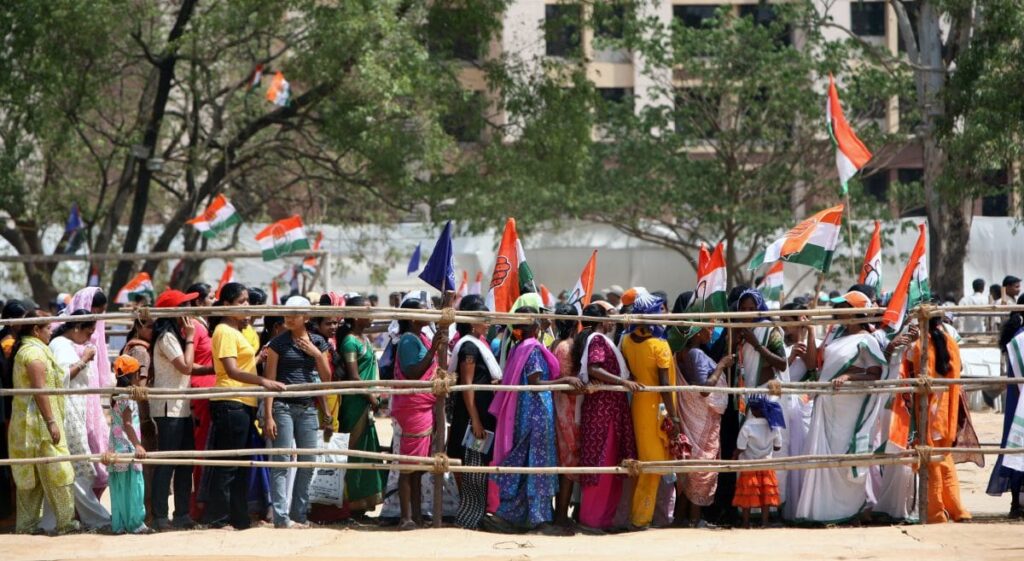
In line with its 2014 promise of Right to Health for every Indian citizen, Congress has promised to increase the healthcare expenditure from current 1.15 percent to three percent by 2023-24, to fulfil its mega promise of right to healthcare. Increasing government spending on health has been a long-standing demand of experts in the field, although the promised figure is still under the global average of 6 percent.
To counter the Pradhan Mantri Jan Aarogya Yojana (PMJAY) initiative – better known as Ayushman Bharat – Congress has pledged to usher healthcare reforms through a proposed Right to Healthcare Act. Under Congress’s unveiled health agenda, patients are promised free diagnostics, outpatient care care, medicines and hospitalisation through a network of hospitals and enlisted private hospitals.

“The Congress Party has discarded the BJP’s insurance-based model for universal healthcare and wants to replace it with a free public hospital model.”
As compared to Congress’ vision for free healthcare, PMJAY is providing insurance-based financial protection to 10.74 crore vulnerable Indians, representing 37 percent of the population. This includes rural families and identified occupational categories of urban workers’ families, who are afforded a Rs 5 lakh annual cover per family for secondary and tertiary healthcare, mainly for hospital care.
But the Congress Party has discarded the BJP’s insurance-based model for universal healthcare and wants to replace it with a free public hospital model. Rahul Gandhi said, “[Ayushman Bharat] only diverts public money into private hands and we want to strengthen our public health infrastructure.’
Congress MP Rajiv Gowda told Health Issues India, I don’t think Ayushman Bharat is a right policy approach and I am sceptical that it would work. If you take the example of America, it has resulted in the escalation of cost and exclusion of large sections of the population. We may end up in a similar situation here as well. Congress wants to focus on public provision so we would concentrate on prioritising public services.”

“There are key differences between past and present commitments to health. For the first time, pollution and climate change has been foregrounded in the national political discourse surrounding public health…[recognising] the crisis of pollution as a national health emergency”
Rahul Gandhi’s promise of a right to healthcare isn’t new. In fact, it has been in every Congress manifesto for a decade and a half. The last Congress-led government under Prime Minister Manmohan Singh launched a National Rural Health Mission in 2005, with a cadre of grassroots health workers that still forms the backbone of the country’s rural healthcare system, though the programme has had inefficiencies. It called for increasing health spending to three percent by 2022, ensuring the availability of free essential medicines, and not relying on insurance firms to purchase healthcare for the government.
There are key differences between past and present commitments to health. For the first time, pollution and climate change has been foregrounded in the national political discourse surrounding public health through Congress’ vision document. The party has recognised the crisis of pollution as a national health emergency and aims to strengthen India’s anti-pollution programme to fight the impending crisis of climate change.
![Kamla Nehru Hospital, Madhya Pradesh: By Tashu jal [GFDL (http://www.gnu.org/copyleft/fdl.html) or CC BY-SA 3.0 (http://creativecommons.org/licenses/by-sa/3.0)], via Wikimedia Commons](/wp-content/uploads/2017/07/Kamla_Nehru_Hospital-1-300x200.jpg)
“Healthcare comes second only after employment opportunities as priorities in people’s minds”
Recognising the increasing gap between medical staff and patients, with only one doctor catering to over eleven thousand patients, Congress wants to train more medical staff and specialised doctors by establishing more medical colleges.
The Association for Democratic Reforms’ Mid-Term Survey reports suggest, healthcare comes second only after employment opportunities as priorities in people’s minds. An analysis by Scroll.in cites, “the National Rural Employment Guarantee Act over the National Rural Health Mission as the reason the Congress-led government came back to power in 2009. Others have suggested that though it is a major concern, voters don’t necessarily trust the government, particularly at the Centre, to fix the problem and so parties are rarely punished for not providing major advances on that front.”
It is good to see Congress party shifting the national discourse to real issues of jobs, farmer distress and healthcare in its manifesto. But can the party transform its promises into structured policies that will help India fight against the rising national burden of non-communicable diseases, a number of crises related to environmental health and a still-present burden of infectious conditions? The polls – and their outcome – will tell.

